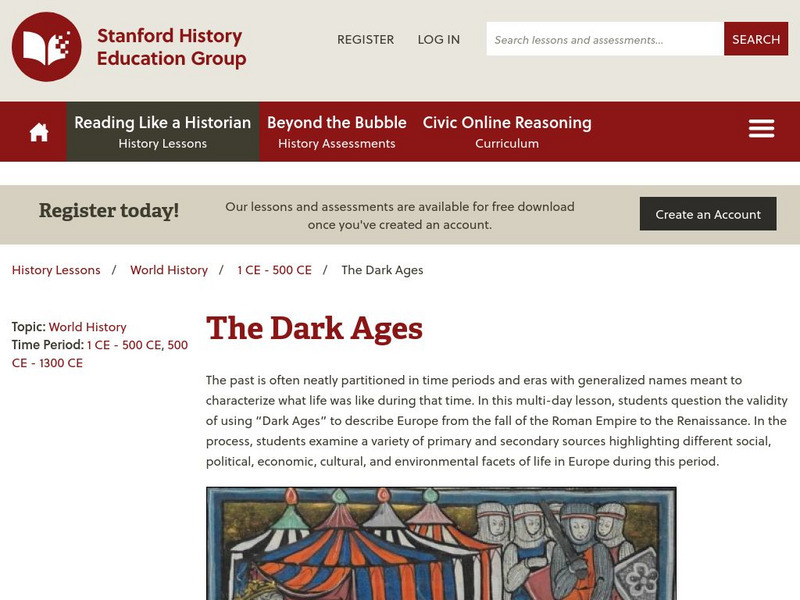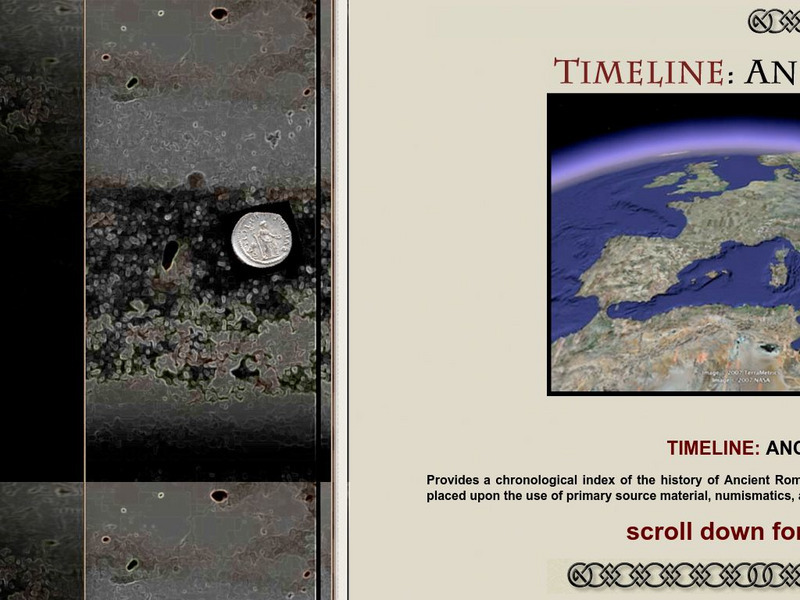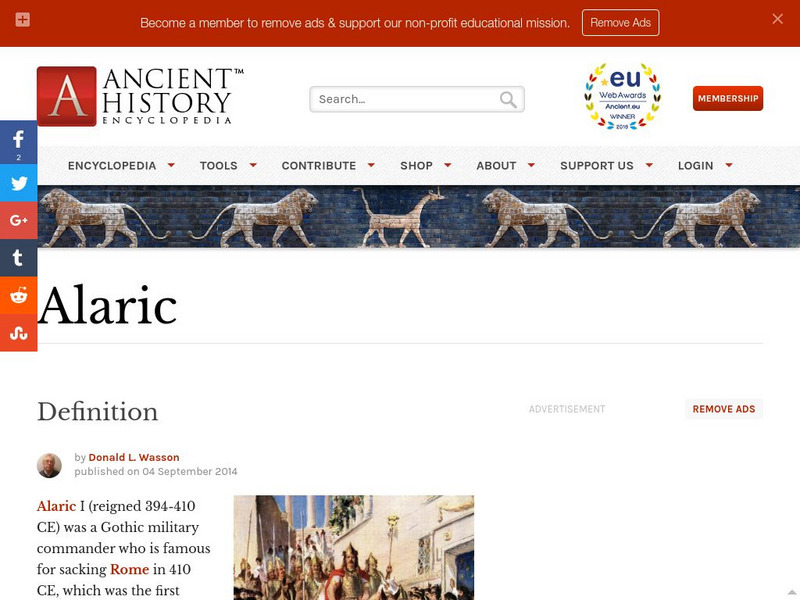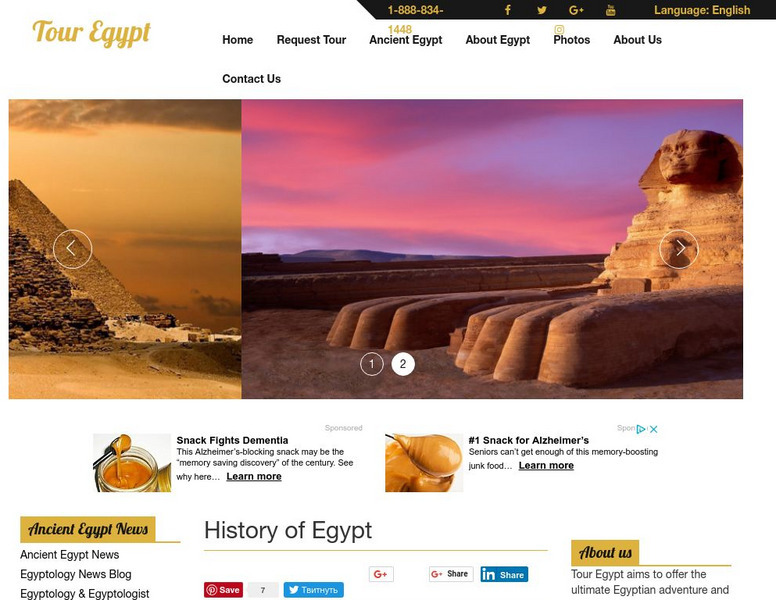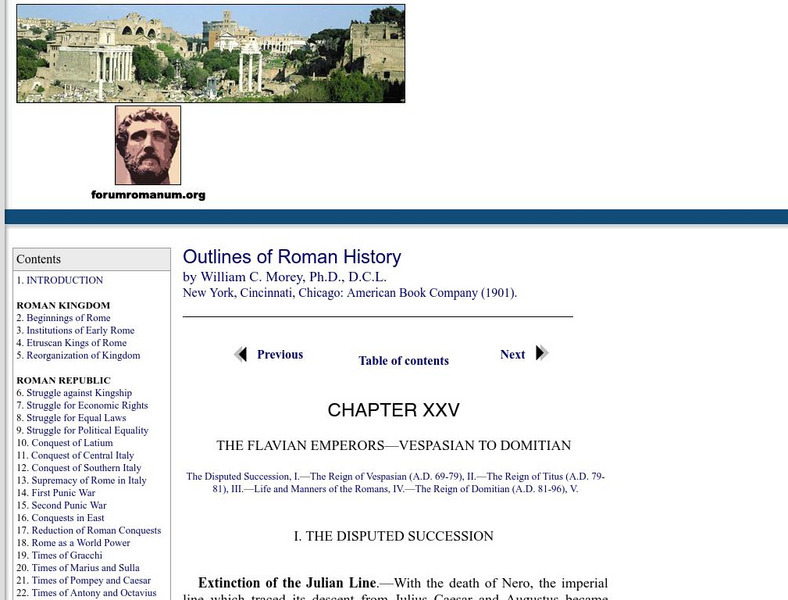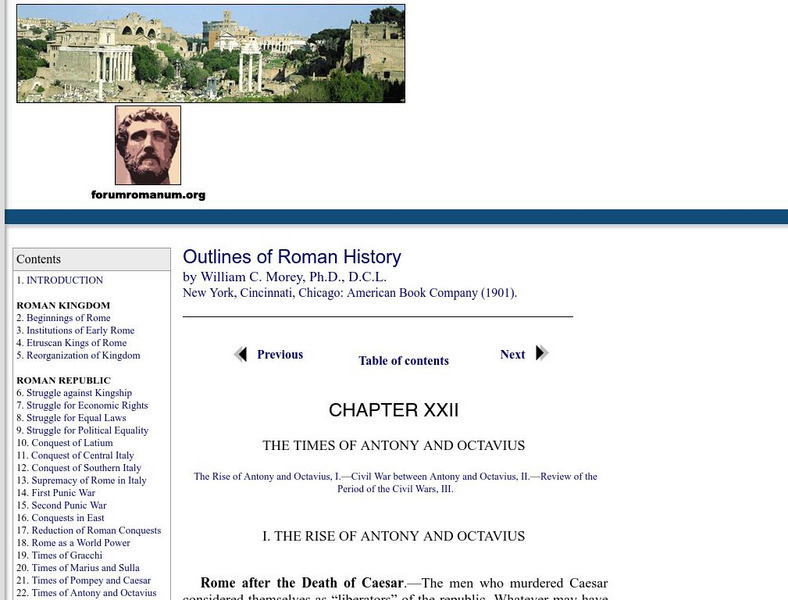BBC
Bbc: Ks2: Who Were the Ancient Greeks?
About 2,500 years ago, Greece was one of the most important places in the ancient world. The Greeks were great thinkers, warriors, writers, actors, athletes, artists, architects and politicians. The name 'Greeks' was given to the people...
Utah Education Network
Uen: Ancient Civilizations and the Modern World
Learn how ancient civilzations developed based on the local physical features and how the boundaries of early civilizations compare to their modern counterparts.
Smithsonian Institution
National Museum of American History: Parthia: The Forgotten Empire
The Parthian Empire lasted for five hundred years and have been mostly forgotten, despite their prowess in the Middle East. Their kingdom began in 247 BC when Arsaces I was elected as King of Parni. They were the only civilization that...
Travel Document Systems
Tds: Libya: History
Read about the history of Libya from its beginnings as a Phoenician outpost through its control by many governments, its eventual independence, and current government. Information is from the U.S. State Dept. Background Notes.
Stanford University
Stanford History Education Group: The Dark Ages
[Free Registration/Login Required] Primary and secondary source documents, timeline, PowerPoint, and lesson plan reinforcing life during the Dark Ages in Europe. Over several days students will come to understand all aspects of this...
Other
Ancient Roman History Timeline
Narrative timeline highlights the people, especially authors, who shaped and chronicled the events of Ancient Rome. Offers specific links to outside sources with most entries. Most entries are highlighted with pictures and primary text...
Massachusetts Institute of Technology
Mit: Open Course Ware: The Ancient World: Rome
Teachers looking to enhance their lessons on Ancient Rome, peruse through the reading ideas and study guides offered through MIT.
Other
The History of the Colosseum
Gives a detailed history on the origins, building and use of the Colosseum in Rome. Also has information on the architecture, games etc., a very complete explanation.
World History Encyclopedia
World History Encyclopedia: Alaric
Encyclopedia entry provides detail about Alaric and the sack of Rome. Includes photos, timeline and links to further reading.
National Endowment for the Humanities
Neh: Edsit Ement: In Old Pompeii
Use this lesson to take students on a virtual field trip to the ruins of Pompeii to explore everyday life, art and culture in ancient Roman times. Students will then use what they learned about the history and destruction of Pompeii to...
Middlebury College
Middlebury College: Essays on the Latin Authors
Middlebury College provides unique and useful essays on a variety of Latin authors in ancient Roman literature.
Other
Parker Middle School: Relief Sculpture
This resource presents a general history and links to everything about relief sculpture. There are image examples and links to Greek, Ancient Roman, Egyptian and Chinese sites.
World History Encyclopedia
World History Encyclopedia: Augustus
Illustrated encyclopedia tells the story of Augustus Caesar, the first emperor of Rome. Includes a timeline and links to related content.
Library of Congress
Loc: Rome Reborn: The Vatican Library & Renaissance Culture
This page chronicles an exhibit hosted by the Library of Congress of manuscripts and documents from the Vatican Library. Includes manuscripts of both a secular and religious nature as well as a detailed history of the Vatican Library....
World History Encyclopedia
World History Encyclopedia: Agora
Description with illustrations offers brief history of the Agora in ancient Greece.
Tour Egypt
Tour Egypt: History of Egypt
Tour Egypt offers an in-depth timeline of Egyptian history beginning with the prehistorical Lower Paleolithic period and ending with the British occupational period. Very useful for finding basic information on Egypt's history.
Forum Romanum
Outlines of Roman History: Julian Emperors: Reign of Tiberius
William Morey, in his 1901 textbook, discusses the first emperor after Augustus, Tiberius.
Forum Romanum
Outlines of Roman History: Flavian Emperors: Reign of Domitian
William Morey, in his 1901 textbook, describes the emperor Domitian, the last emperor in the Flavian dynasty.
Forum Romanum
Outlines of Roman History: Flavian Emperors: Reign of Vespasian
This passage from the 1901 textbook of William Morey discusses the beginning of the Flavian dynasty and its first emperor, Vespasian.
Forum Romanum
Outlines of Roman History: Equalization of the Orders
This article shows how, through debt, agrarian, and legislative reform, the patricians and plebeians finally form a united citizenship.
Forum Romanum
Outlines of Roman History: Times of Pompey and Caesar:the Rise of Pompey
In a passage from William Morey's 1901 textbook, we learn of the military brilliance of Pompey.
Forum Romanum
Outlines of Roman History: Civil War Between Antony and Octavius
This passage in William Morey's 1901 textbook explains the hostility between Antony and Octavius and Octavius' triumph.
Forum Romanum
Outlines of Roman History: Struggle for Equal Laws
The Laws of the Twelve Tables were written down as a result of the continuing conflict between patricians and plebeians. Now laws were not secret and applied to all, regardless of class.
Forum Romanum
Outlines of Roman History: Second Secession and Its Results
Read about how the patricians finally understand the importance of the plebeians, who are then granted the right to pass laws for all and to intermarry with patricians.



